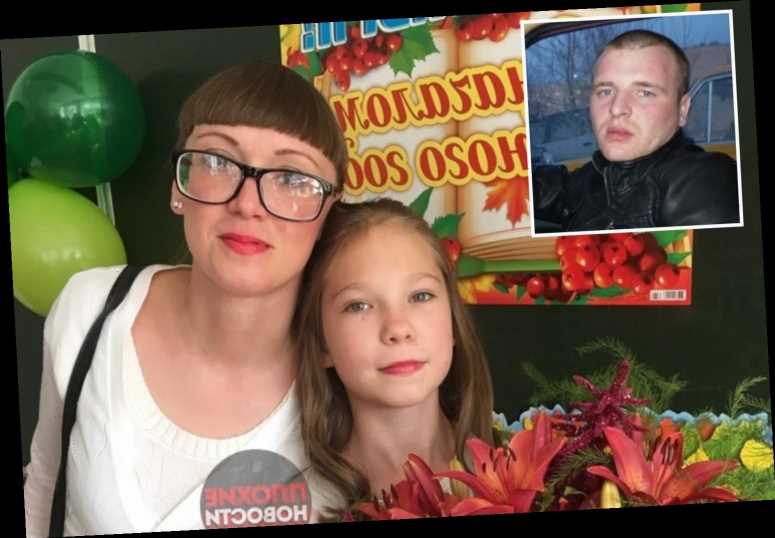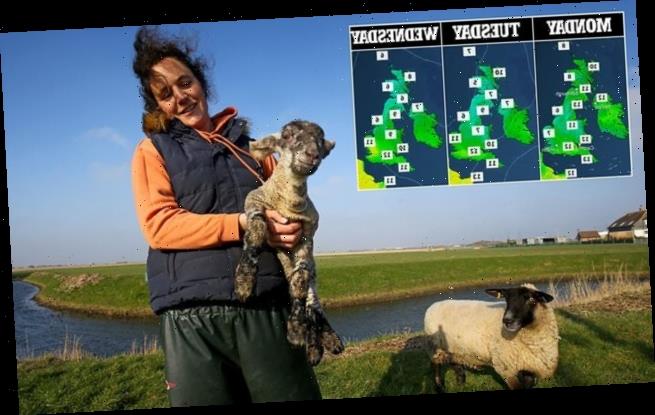A VIRULENT new coronavirus strain ripping through Brazil has caused a fresh spike in deaths and brought overwhelmed hospitals to their knees.
In a grim warning for the UK – where authorities are hunting an infected mystery traveller – patients with the P1 mutation from the Amazon have been found to suffer for days longer and have a viral load TEN TIMES higher than with other variants.
? Read our coronavirus live blog for the latest news & updates…
Experts have warned the dangerous new Covid strain could be three times more infectious than other types, and vaccines might not be so effective.
The P1 mutation was first detected in jungle city Manaus, where it spread like wildfire as cemeteries filled with hundreds of new graves.
It has become the dominant strain elsewhere in Brazil, driving an alarming rise in deaths and infections.
On Sunday nationwide deaths broke a new record for the second day in a row.
Brazil now has a rolling average daily death rate of 1,208, up by 11 per cent on a fortnight ago.
And new recorded cases have shot up 20 per cent to an average of almost 55,000 a day.
In Ceará state 1,500 miles east of Manaus, some 91 per cent of intensive care beds are full as overwhelmed medics struggle to cope with a tide of new patients, reports Globo news.
State health secretary Dr Cabeto warned the new strain can double the length of time patients suffer the most serious symptoms.
He told local TV: "Our analyses that show that these patients have the inflammation time, that is, that second phase of the disease – in which people have pneumonia and go to hospital – is longer.
"Previously, we were in seven, ten days, now we are already talking in 14 days."
VIRAL LOAD
Meanwhile a preliminary study in Brazil – which is not yet published – found patients with the P1 strain have ten times the number of virus particles in their bodies.
Researcher Felipe Naveca of the Oswaldo Cruz Foundation said the higher "viral load" does not necessarily make people sicker but it does increase the chance of passing the bug to other people.
This could explain why it spread so rapidly in Amazonas state before it was detected, he added.
Dr Naveca said: "The problem of the virus circulating for a long time, when there was also a fall in social distance, favored the emergence of P1."
Last month Brazil's health secretary Eduardo Pazuello warned the mutant strain is estimated to be three times more contagious than other variants.
He also tried to play down fears by insisting the Oxford AstraZeneca vaccine and a Chinese jab do work on the P1 strain, without offering any evidence.
International experts say it is not yet known how well existing vaccines will work against it.
Danny Altmann, professor of immunology at Imperial College London, warned the P1 strain could "break through" previously acquired immunity.
He said: "It's somewhat more worrying than the UK variant, the Kent variant, that we're used to talking about.
"It covers the double whammy, we think, of being more transmissible and somewhat better at evading neutralising antibodies."
Prof Graham Medley, who sits on the Sage group that advises the UK Government, said the Amazon variant of could force Britain to delay the lifting of lockdown and even "go backwards".
The expert, from the London School of Hygiene and Tropical Medicine, told the BBC: "It is a variant of concern, but we are going to be faced with these in the next six months as we move towards relaxing measures.
"There are going to be challenges on the way and there is always a risk that we might have to go backwards, and that's what nobody wants to do is to actually open up and then have to close down again."
His warning comes after six patients in the UK tested positive for the worrying new Brazilian strain.
Five are in isolation, but a nationwide search was launched for a mystery Covid patient who did not complete tracing details.
Vaccines Minister Nadhim Zahawi said a massive effort is underway to locate the missing person who must be found "as soon as possible" so measures can be taken to squash any outbreak.
Mr Zahawi told Sky News: "In terms of its profile this P1 variant is much closer to the South African variant which we’ve been dealing with now for several weeks by surge testing, genome sequencing, and isolation.
"This is a variant of concern. It’s very similar in terms of its mutations to the South African variant so it is concerning.
"There is one case who the individual didn’t fill in their test card details so we can contact them. They probably got a home kit or a test kit from their local authority.
"They could be asymptomatic or they could've had symptoms and be isolating, but we need to find them as soon as possible.
"What we’re asking today is if anyone had a test on February 12 or 13 to contact NHS 119 so we make sure we identify that individual."
Surge testing began in five more postcodes this morning as authorities frantically try to stop the new strain spreading.
Two cases of the Brazilian variant have been located in South Gloucestershire. They originated in someone who arrived from Sao Paolo before hotel quarantine came into force.
Sara Blackmore, director of Public Health at South Gloucestershire Council, said: "Behave as if you are carrying the virus, stay in and only leave home if you must."
The Scottish Government said three residents tested positive for the P1 strain after returning from Brazil via Paris and London.
Officials are contacting the other passengers on their flight from London to Aberdeen in early February.
What is the P1 Brazilian variant?
THE BRAZILIAN variant (P.1) carries three key mutations that affect the spike protein.
The spike protein is the part of the virus, SARS-Cov-2, that attaches to human cells and allows the virus to infect the body.
As a result, it is the part of the virus that the Covid vaccines are designed to target.
That's why scientists believe while the jabs should still work, they could be less effective against the Brazilian and South African strains.
Experts first detected the P.1 variant in Manaus, north Brazil, in December.
It is not yet known if the mutation causes more severe Covid-19, but evidence suggests it may be more transmissible.
Porton Down scientists are conducting more analysis to confirm evidence that indicates the strain does not cause any higher mortality rate or that it affects the vaccines or treatments.
It was detected in Brazil and in travellers from Brazil to Japan, and contains a unique constellation of lineage defining mutations.
Like the South African variant, the Brazilian one carries a mutation in the spike protein called E484K, which is not present in the original UK strain, or the widely circulating Kent strain.
The E484K mutation is present in the South African and Bristol strains.
The E484K mutation is thought to help the virus bypass the immune protection provided by prior infection or vaccination through antibodies.
Scientists analysing the Brazilian variant say the mutations it shares with the South African variant seem to be associated with a rapid increase in cases in locations where previous attack rates are thought to be very high.
They say it is therefore essential to rapidly investigate whether there is an increased rate of re-infection in previously exposed individuals.
Scottish Health Secretary Jeane Freeman said: "The identification of this new variant is a concern but we are taking every possible precaution.
"This new variant demonstrates how serious Covid is and reinforces the need to minimise the spread of the virus."
The World Health Organisation has been informed of the six new cases.
There are several new variants of Covid which have spread in the UK since the end of 2020.
Boris Johnson forced England into its third national lockdown in January after the Kent strain caused a surge in infections higher than the first wave last spring.
Professor Stephen Powis, the NHS's national medical director, has said coronavirus vaccines can be quickly adapted to tackle new strains.
He told BBC News: "The new vaccines which are being used for Covid can be adapted very rapidly so it's likely that if we do need to change the vaccine that can be done in months, rather than years, which was the case with the more traditional vaccines."
Source: Read Full Article












